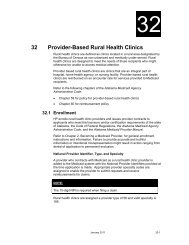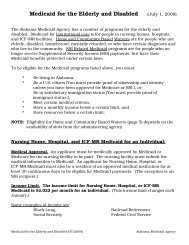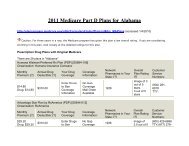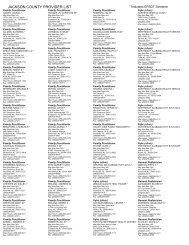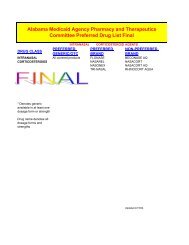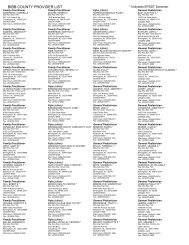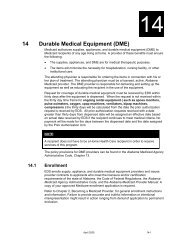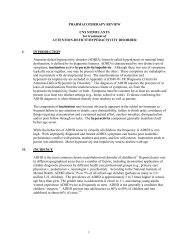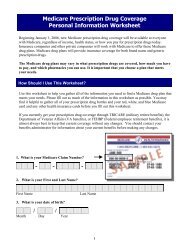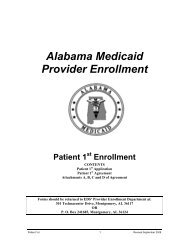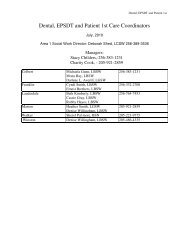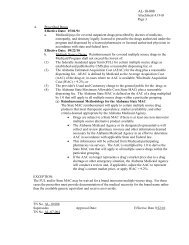Appendix A Well Child Check-Up (EPSDT)
Appendix A Well Child Check-Up (EPSDT)
Appendix A Well Child Check-Up (EPSDT)
You also want an ePaper? Increase the reach of your titles
YUMPU automatically turns print PDFs into web optimized ePapers that Google loves.
<strong>Well</strong> <strong>Child</strong> <strong>Check</strong>-<strong>Up</strong><br />
A.2 Using PT+3 with <strong>EPSDT</strong> services<br />
A patient education method (PT+3) has recently been developed for working with<br />
illiterate or marginally literate individuals. The PT+3 allows providers to make the<br />
most of patient contacts as opportunities to provide developmentally appropriate<br />
information for recipients and their families.<br />
The acronym PT+3 means:<br />
P = Personalize the problem<br />
T = “TAKLE” the problem:<br />
T = set a Therapeutic Tone,<br />
A = Assess the knowledge level of the patient,<br />
K = provide Knowledge,<br />
L = Listen for feedback,<br />
E = Elaborate or reeducate as needed.<br />
+3 = Summarize the teaching session into three essential points.<br />
PT+3 is a standardized protocol that provides the skills and structure for health<br />
care providers to assist young or marginally literate patients in learning and<br />
remembering essential points from a health care encounter. PT+3 is designed to<br />
increase patient knowledge and compliance. Patients seem to like and<br />
understand the simplified information and providers like the process. Using PT+3<br />
saves time for providers and enhances the medical visit for the recipient. PT+3<br />
enables individuals to remember the most important aspects of the medical visit.<br />
Specially designed low literacy materials are available for children (<strong>EPSDT</strong><br />
Brochures), teens, (“How to Talk to Your <strong>Child</strong>ren”), and adults (“Facts about<br />
Birth Control”) and are free to providers including <strong>EPSDT</strong>, Patient 1 st , and<br />
Medicaid family planning providers who receive training in the use of the PT+3<br />
method of education. For more information regarding PT+3, please fax your<br />
request to (334) 353-5203, attention “Outreach & Education.” Please include your<br />
name and telephone number.<br />
A.3 Performing Screenings<br />
This section describes becoming an <strong>EPSDT</strong> screening provider, verifying<br />
recipient eligibility, scheduling screenings, critical components of screenings, and<br />
submitting claims for <strong>EPSDT</strong> screenings.<br />
A-4 January 2011



